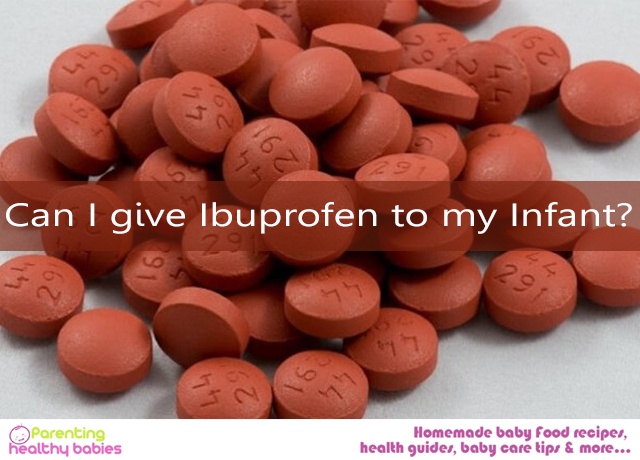When your child gets sick, you want to make them feel better as soon as possible. To do so safely, it’s important to follow careful guidelines to ensure that they get the medication they need. If they’re not used correctly, over-the-counter (OTC) children’s medicines can cause serious, even life-threatening complications. These tips can help you avoid that.
Common children ailments lets consider even common cold is treated by medicines. Most generally used drug to relieve fever in adults as well as babies is ibuprofen. Not to deny with that such a regular drug can also be dangerous for your young ones. Let take a further look into this habitual drug.
Can I give Ibuprofen to my infant?
Ibuprofen
Ibuprofen belongs to a class of drugs called non-steroidal anti-inflammatory drugs. These drugs are used for the management of mild to moderate pain, fever, and inflammation.
Its uses
It is used for treating menstrual cramps, osteoarthritis, rheumatoid arthritis, and juvenile idiopathic arthritis.Ibuprofen is a common painkiller widely used for childhood ailments such as cold symptoms, teething and toothache. Ibuprofen also treats inflammation, such as aches and pains after an injury like a sprain, or any other child ailment like childhood arthritis. It can also be used to reduce fever (38C or above).
For younger children, ibuprofen comes as a syrup that you swallow. For older children, ibuprofen is available as tablets, capsules and granules that you dissolve in water to make a drink. Pain, fever, and inflammation are promoted by the release of chemicals called prostaglandins in the body. Ibuprofen blocks the enzyme that makes prostaglandins, resulting in lower levels of prostaglandins. As a consequence, inflammation, pain and fever are reduced.
Dosing pattern
There are divergent dosing recommendations for analgesia and treatment of fever in infants, especially in the age group between 3 and 6 months of age.Based on the current evidence, short-term use of ibuprofen is considered safe in infants older than 3 months of age having a body weight above 5-6 kg when special attention is given to the hydration of the patient. Ibuprofen should be prescribed based on body weight using a dose of 5-10 mg/kg of ibuprofen every 6-8 hours for the treatment of fever and pain. This dose can be administered 3-4 times a day resulting in a maximum total daily dose of 30-40 mg/kg.
The rectal route has been shown to be less reliable because of erratic absorption, especially in young infants.
Ibuprofen should be taken with food in order to prevent an upset stomach.
Ibuprofen isn’t suitable for some children.
Counter check with your doctor if your child:
- has had an allergic reaction to ibuprofen or any other medicines in the past
- has chicken pox – taking ibuprofen can cause severe skin reactions
- has asthma
- has liver or kidney problems
- has problems where they have an increased risk of bleeding
- has an inflammatory bowel disease, such as ulcerative colitis and some other syndromes
Side effects
It’s a safe drug when used correctly, but taking too much can make a child very sick. Overdosing can lead to stomach or intestinal problems.
1. Bleeding stomach
The bleeding could be set off in the stomach, or existing ulcers in the stomach could be worsened by taking the drug. Bloody or blackened stool may indicate this dangerous side effect.
2. Liver problems
Serious liver problems such as jaundice and hepatitis are possible side effects from children taking ibuprofen.
3. Allergic reactions
Children known to have an allergic reaction to aspirin may be especially susceptible to ibuprofen allergy attack. If a child reacts with trouble breathing, facial swelling, chocking throat or reddening skin immediate medical interventions should be taken.
4. Infant danger
Side effects for administering ibuprofen to infants younger than 6 months of age could be serious.Neither the safety of the drug with infants nor its effectiveness has been established.
Precautions
- Always use the measuring device (dropper or measuring cup) that comes with the medication or you could risk overdosing. Never use droppers from different medications or spoons from the kitchen.
- If your baby’s condition persists or worsens, or if you think you may have a serious medical problem, get medical help right away. If you are using the nonprescription product to treat your child for fever or pain, consult the doctor right away if fever worsens or lasts more than 3 days, or if pain worsens or lasts more than 10 days.
- Don’t give ibuprofen to babies under 6 months without calling your doctor first.













